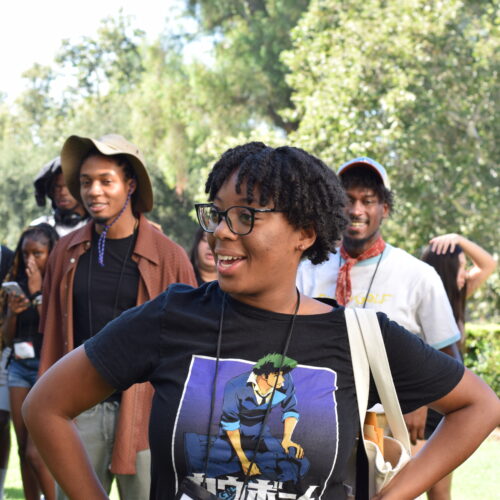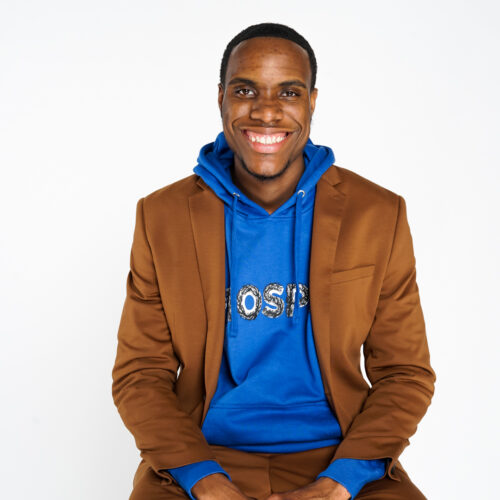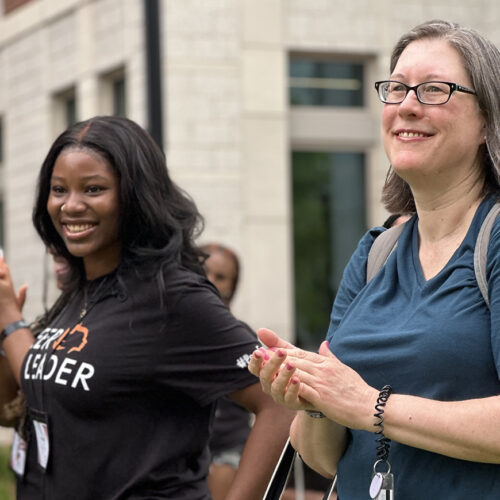As a nonprofit organization, PeerForward succeeds with the help of service-driven volunteers. Volunteering at PeerForward doesn’t just help the organization and those we serve; it also brings meaning and purpose to our volunteers’ lives. Become a volunteer HERE.
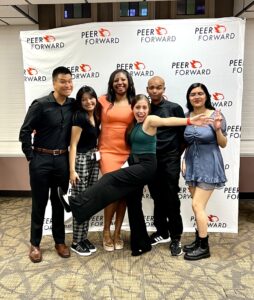 Chanel Nicole White is a former TV journalist and Barry University professor who we’re grateful to say is also a dedicated PeerForward Alumni and Volunteer. She exemplifies our manta “from self-to-service” beginning her journey as a Peer Leader and Alumni Leader and now serving as a Writing Coach. Chanel understands the barriers our Peer Leaders face as a first-generation student herself. She strives to help uplift students who are in similar situations as she once was. Her unwavering dedication to serving our Peer Leaders is why she was selected as our Volunteer Spotlight! We caught up with Chanel to talk about her PeerForward volunteer experience and why she is committed to serving the next generation of Peer Leaders.
Chanel Nicole White is a former TV journalist and Barry University professor who we’re grateful to say is also a dedicated PeerForward Alumni and Volunteer. She exemplifies our manta “from self-to-service” beginning her journey as a Peer Leader and Alumni Leader and now serving as a Writing Coach. Chanel understands the barriers our Peer Leaders face as a first-generation student herself. She strives to help uplift students who are in similar situations as she once was. Her unwavering dedication to serving our Peer Leaders is why she was selected as our Volunteer Spotlight! We caught up with Chanel to talk about her PeerForward volunteer experience and why she is committed to serving the next generation of Peer Leaders.
What drives you to serve first-generation, low-income students?
I was a first-generation, low-income student. I can relate to the students on so many levels because I was once there. I know what it feels like to think that certain things, such as graduation from college, are impossible. I am here to remind students that obtaining a college education and creating a better life for themselves is indeed possible.
Can you describe the impact of the PeerForward volunteering experience?
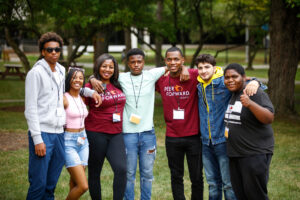
Being able to uplift, motivate, and encourage young teenagers to become the best versions of themselves brings on a different level of fulfillment. The students leave the workshops feeling empowered, knowing that they now have an even bigger support system rooting for them and their success. The volunteers leave the workshops knowing that their time and effort made a difference and that they are truly impacting lives.
In your opinion, why should low-income students pursue postsecondary education?
Pursuing a college degree gives low-income students more options in life, compared to someone with only a GED or high school diploma. This allows them to break generational cycles of poverty and create a better future for themselves and their families.
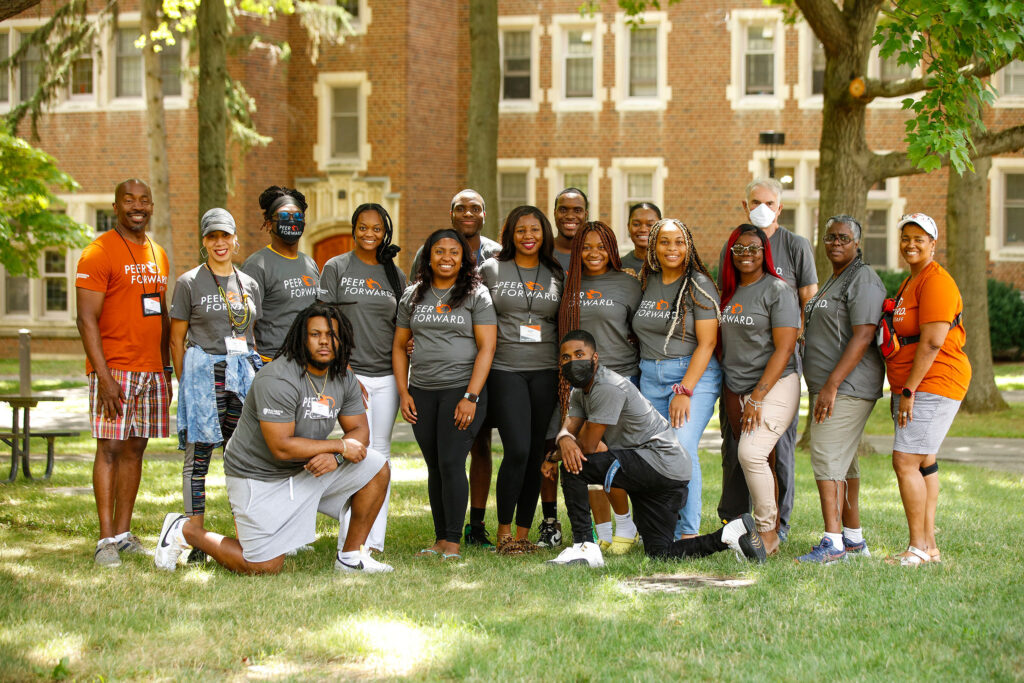
Some responses have been edited for length and clarity.










